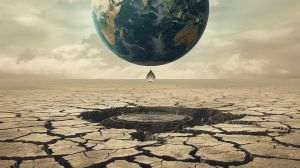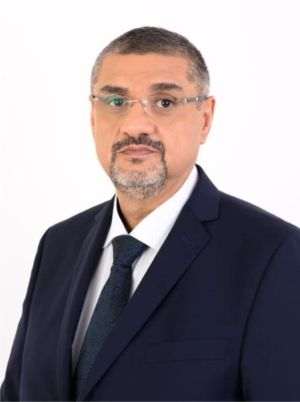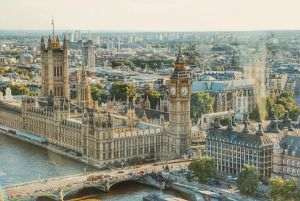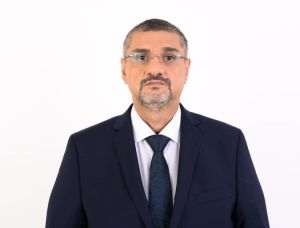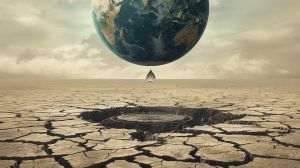The Gross Domestic Product of our country could triple by 2050, if the central authorities would adopt measures to mitigate climate change and reduce carbon emissions, according to the Country Report on Climate and Development for Romania (RTCD) published yesterday by the World Bank (WB).
To achieve this goal, World Bank experts claim in the quoted document that we need investments of almost 356 billion dollars by 2050, equivalent to approximately 3% of GDP. The report drawn up by the World Bank also offers a macroeconomic modeling for our country, from which we note that the GDP can increase constantly until the year 2050, provided that some structural reforms are implemented in the economy, reforms that will raise the standard of living in Romania to the average of the European Union.
The document emphasizes that our country faces vulnerability to climate change, especially in terms of floods and drought, and that the Romanian economy is heavily based on coal, with an average energy consumption 2.5 times higher than the European Union average (EU).
Marina Wes, country manager from the World Bank stated: "While the challenges related to achieving decarbonization are considerable, through an appropriate mix of structural, social and economic reforms and effective investments supported by public, private and European funds, Romania can raise the standard of living, while at the same time achieving its climate objectives".
The cited report also shows that our country is on its way to achieving its 2030 goal of reducing carbon emissions by 55% compared to the 1990 level.
According to the centralized data in the analysis carried out by the World Bank, it can be seen that Romania managed to reduce greenhouse gas emissions by 53% between 1990 and 2018. However, in order to achieve the goal of carbon neutrality by 2050, coordinated action, significant funding and effective policy decisions will be required. The report notes that the estimated amount of investment needed to develop a decarbonized energy sector alone amounts to $356 billion by 2050, equivalent to about 3 percent of the country's cumulative gross domestic product over the same period.
Experts emphasize the importance of the energy transition, considering that more than 70% of Romania's total energy consumption is currently based on fossil fuels. In this context, the energy sector, which includes electricity generation, heating, transport and production, contributes 66% to the total greenhouse gas emissions in Romania. It is followed by agriculture with 17% and industry with 12%.
The quoted document shows: "In order to achieve net zero emissions by 2050, Romania must implement a massive electrification program, which will replace the direct consumption of fuels with energy generated from renewable sources. The RTCD demonstrates that the level of the additional cost of developing a system of greener and renewable electricity-based electricity does not substantially increase investment needs. Increasing the energy efficiency of buildings, particularly through better insulation, is also highlighted as an essential investment."
The World Bank report offers a suggested path to climate neutrality by 2050, with a focus on several other priority areas in addition to energy sector decarbonisation. These include: decarbonising the transport sector, optimizing the use of water resources, as well as investing in human capital and skills.
• Klaus Iohannis: "The report emphasizes that people who are already disadvantaged from a socio-economic point of view are more exposed to climate risks"
In the context of the launch of this report, the event "Climate change and development: perspectives for Romania" was organized at the Cotroceni Palace by President Klaus Iohannis.
During this event, in the address delivered by President Klaus Iohannis, he said: "The effects of these climate changes are becoming more and more obvious and acute for the citizens of Romania, whether it is heat waves that leave their mark on health, the phenomenon of drought, with a negative impact on the economy, or violent storms that destroy property and endanger people's lives. We respond to climate challenges through adaptation measures to the new realities, but also through mitigation measures, i.e. by reducing greenhouse gas emissions. Romania is part of the international climate transition processes, which will inevitably bring important changes in many sectors of our life and activity".
Regarding the report drawn up by the World Bank experts, President Iohannis stated: "One of the key conclusions of the Report shows that in the case of Romania there is potential to significantly improve the quality of life for our citizens and, at the same time, to go through the decarbonisation process necessary to achieve climate neutrality. The report advances a series of recommendations that align with the directions that I have supported and promoted at the national and international level in terms of addressing the issue of climate change. For example, the report emphasizes that people who are already disadvantaged from a socio-economic point of view are more exposed to climate risks and less resilient to them, both in Romania and internationally. Action on climate change is in everyone's interest, and the costs of inaction or delayed action are enormous. We therefore need to create new financial and social instruments that focus more effectively on citizens with a high degree of vulnerability in the context of climate change. At the same time, strengthening the human resource through education and skills development becomes essential for a successful green transition, from which the whole society can benefit. The report points to ways in which we can reconcile climate action with our country's social and economic development through investment, the development of green industries and integration into green global value chains. Areas in which Romania has a competitive advantage are also highlighted, thus expanding experience and knowledge at the national level in these areas".
• WB recommendation: The private environment, supported to increase investments in the energy field
At the end of the quoted document, the World Bank experts give us several recommendations on seven areas of intervention: electrification and the change of fuels, energy efficiency, water resource management, protecting human capital, accelerating decarbonization in the field of transport, reducing incentives through effective carbon pricing, inter-institutional collaboration.
For example, in the field of electrification, the World Bank experts claim that increased investments are needed in the generation of renewable energy, especially in the private sector, in order to reach in 2030 an additional production capacity of 2,240 MW in the wind area and 3,640 MW in the area of solar energy. The cited source shows that the stimulation of private sector investments in this sector requires the efficiency of administrative processes for the installation of new renewable capacities, the increase of connectivity through the urgent consolidation of the transport infrastructure, both at the national level (especially between the eastern part of the country and Bucharest) and and internationally (accelerating the construction of international interconnections), to reduce connection times and increase predictability. World Bank specialists call for limiting the participation of state companies in hydropower and nuclear energy projects, increasing competition on the wholesale market by adding guarantees - establishing a clearinghouse - and increasing liquidity and transparency by removing the obligation of electricity producers to sell at least 70% of the available energy they produce through bilateral contracts, strengthening competition in the electricity balancing market by reducing the current high market concentration and increasing transparency, by raising entry barriers for new competitors, etc., including removing energy price capping.
Regarding energy efficiency, the report shows that the annual rate of renovation of the building stock must increase from 0.5% to 3.4% and investments of over 1.6 billion euros per year must be mobilized, of which over 1 billion euros per year to represent private investments.
In terms of transport, the World Bank report recommends that we promote the shift to low-carbon modes of transport. For freight transport, it is necessary to intensify the renewal of railway infrastructure and rolling stock, giving priority to investments that are truly reflected in the improvement of the performance of the sector, as well as a better equalization of the conditions of competition between road and rail transport, respecting the target of the Plan National Recovery and Resilience of moving 10% of freight transport from road to rail by 2026 and increasing this percentage to 25% by 2050.
Related to passenger transport and public transport, the cited source shows that electromobility and intermodal transport must be prioritized in the investments made in this field in urban areas.
In order to reach the electromobility targets, World Bank experts argue that the state needs to provide financial incentives to companies to change the existing car fleet, which uses fossil fuels, with an electric fleetand also of second-hand origin.


